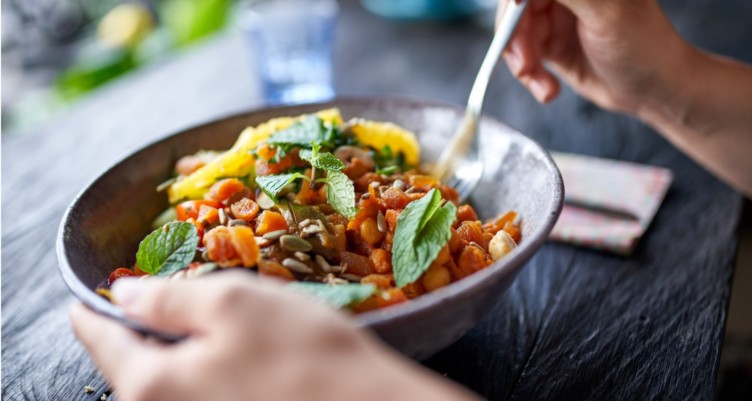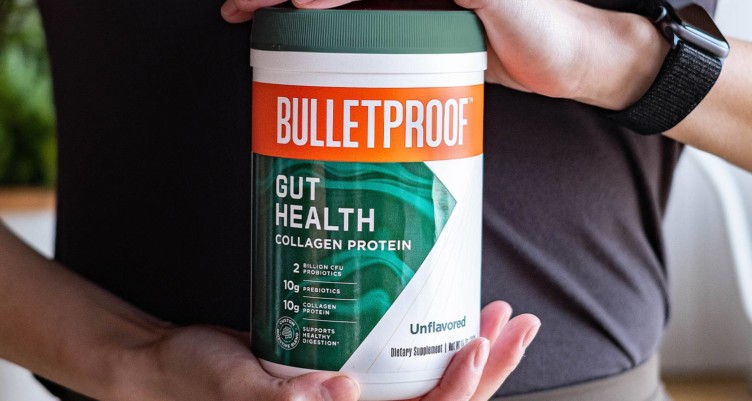6 of The Worst Foods for Gut Health

- The gut microbiome affects aspects of every system in our bodies. Maintaining gut health is key to maintaining overall health.
- Consumption of certain foods can damage gut health by allowing harmful bacteria to proliferate.
- By changing up your diet and cutting back on certain foods, you can alter your gut flora and allow helpful bacteria to take over.
The wellness world has been abuzz over the gut microbiome for the last several years. This network of billions of bacteria found in the digestive tract has far-reaching impacts on our bodies. In fact, it can impact everything from skin health to immune function to mental health.
There’s a constant battle in our guts between good bacteria and the potential “bad” bacteria that want to take over. The good bacteria help regulate and modulate our bodies, while the bad bacteria can impede that regulation and continue to health challenges—some small and some not so small. The good news is that it’s fairly simple to help the good bacteria win the war.
It just comes down to what you put in your body.
The impact of different foods on your gut

The discovery of the gut microbiome has led to tons of research into what foods help it thrive and what foods can cause harm to its delicate balance.
When your gut microbiome is out of whack, your body can manifest symptoms in the gut itself and in other systems. Problems like occasional constipation, bloating, and fatigue are just a few of the issues that could be a consequence of poor gut health.[1] The potential health benefits of maintaining digestive health and a proper balance of the gut microbiome are far ranging.[2] [3]
6 of The Worst Foods for Gut Health

Research shows that some foods help balance the gut and others may cause some unwanted effects. While many people think they can just add fermented foods (hi, kimchi and sauerkraut!) to their diet to take care of their gut, it’s not quite that simple.
What you don’t eat is just as important as what you do eat. Some foods work against gut health, so to keep your digestive system running smoothly and your gut bacteria happy, stay away from the following food groups.
1. Fried foods
Fried foods have always been on do-not-eat lists for health-conscious people. The types of oils commonly used in deep frying (corn oil, canola oil and soybean oil) are notoriously unhealthy.
Thanks to early scientific research, we know the way those oils react to the high heats of deep-frying can inhibit the growth of healthy bacteria in the gut. Fried foods can cause stomach upset, which are clues that all is not well in your gut microbiome.[4]
Related: 6 Inflammatory Foods to Avoid and What to Eat Instead
2. Processed foods
Heavily processed foods like frozen entrees, fast food, white bread and most canned veggies can damage the gut microbiome by not providing the ideal condition for the growth of healthy bacteria. Processed foods are filled with additives (like extra sugar) and preservatives and are low in fiber, which is an important food source for healthy gut bacteria. The sugar allows negative bacteria to flourish while the lack of fiber inhibits the growth of healthy bacterial colonies.[5]
3. Alcohol

Consumption of alcoholic beverages can change the makeup of the gut microbiome, contributing to an imbalanced gut. This imbalance can manifest itself in increased gut permeability leading to potential health challenges.[6]
Related: How Alcohol Affects Your Immune System and How to Bounce Back
4. Dairy
Dairy is a mixed bag when it comes to gut health. The benefits of fermented dairy products like yogurt and kefir are well-known. But if you have sensitivities to dairy or lactose, don’t put your gut in a bad position. Dietary alternatives like full-fat coconut milk or almond milk can satisfy your thirst without the negative drawbacks.
5. Fructose
Fructose is the primary sugar found in many fruits. Even though it is naturally occurring, it can alter gut microbiota. High dietary fructose can increase gut permeability, abdominal fat, and induce insulin resistance.[7]
6. Artificial sweeteners
Though more research is needed, artificial sweeteners like sucralose, saccharin and the compound family of polyols have been shown to change the number and makeup of bacterial colonies in the gut. These changes can lead to an imbalanced gut and give negative bacteria the opportunity to flourish, which may harm good gut bacteria colonies.[8]
Related: Kick Your Sugar Habit With These Bulletproof Alternative Sweeteners
Ways to Improve Gut Health

You can improve your gut health by controlling what goes into your body. From cutting back on certain foods to adding others to your plate (or shake), there are several ways to make this happen:
- Increase the good bacteria in your gut by consuming prebiotics, probiotics and fermented foods. Prebiotic foods like artichokes and other high-fiber vegetables provide food for beneficial bacteria you get from eating probiotic foods like plain yogurt and fermented foods such as kimchi, tempeh, sauerkraut and kombucha. The process of fermentation adds beneficial bacteria like lactobacillus to foods that would otherwise not contain much in the way of a bacterial presence.
- Up your fiber intake by adding fiber-rich fruits and vegetables like avocado, collard greens, broccoli and leafy greens to your diet. These are among the best foods for improving gut health. Not only does fiber fill you up, but it’s also one of the most important factors in maintaining gut health because it provides nutrition for beneficial gut bacteria.
- Eat whole foods that have not gone through any processing or have had minimal processing and therefore haven’t experienced the loss of many of the nutritional benefits their processed counterparts experience. Foods that don’t have a ton of unpronounceable words on their nutrition labels (give us all the fresh meats and veggies!) are better for your health and are generally lower in carbs than processed foods that contain added sugar and other unhealthy ingredients.
- Cut back on sugar, especially since bad bacteria loves the stuff. Saying no to foods with added sugars removes a primary source for detrimental gut bacteria and clears the way for beneficial bacteria to colonize.
- Utilize supplements like Bulletproof Gut Health Collagen Protein and Bulletproof Inner Fuel Prebiotic for added support. Both mix easily into any drink without affecting the flavor. Adding prebiotic and probiotic supplements to your diet can make up for any gaps and keep your gut in good spirits.†
The bottom line: The bacteria found in the digestive system influence many aspects of your overall health. Plus, they can wreak havoc in every system of your body if they get out of whack. Consuming prebiotic and probiotic foods and staying away from unfriendly ones for your gut can get you on the right track.
Prebiotics and probiotics are necessary to achieve optimal gastrointestinal health, but there’s more to it than that. Gain more knowledge about the gut by learning about the importance of postbiotics.
Sign up for early access to sales, product launches, the latest Bulletproof news and more!



